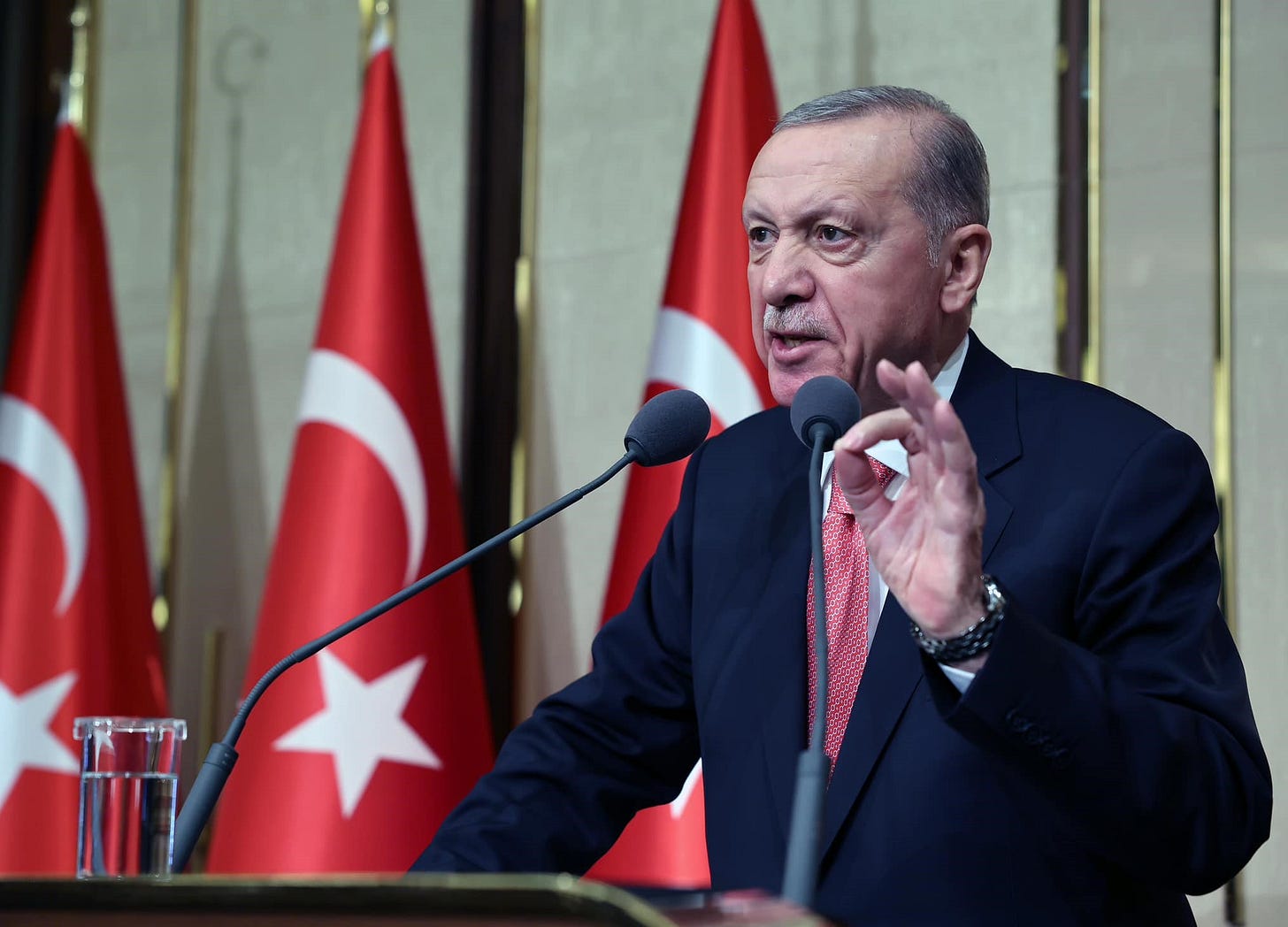Welcome to The Hundred! Before we get started, we have a recommendation for you: Semafor Flagship, a daily newsletter about world news. It’s to the point and its coverage goes beyond the usual suspects. You might hear about the Nigerian economy, Qatar’s role as a mediator, or Argentina’s decision to buy F-16 fighter jets, in addition to important developments in Europe or North America. You can subscribe for free. And now, over to Turkey.
On March 31st, Turks went to the polls for the second time in less than a year. But this time, things did not go well for President Recep Tayyip Erdoğan and his Justice and Development Party (AKP). The secular Republican People's Party (CHP), the main opposition party, claimed victory in Turkey’s local elections. But does that mean Erdogan is losing control of the country?

No. Roughly half of the country supports Erdogan, which is enough in a majoritarian system. This election showed us, however, that Erdogan has been taking that support for granted. A subset of his base was angry enough at Erdogan to send him a message, but I don’t think they are angry enough to vote him out of office yet. For that to happen, Erdogan needs to keep making mistakes and the opposition needs to create a compelling vision for the country’s future. Only then would we see signs of Erdogan’s politics receding.

The AKP’s noticeable loss of support in Turkey’s local elections will make it difficult for the party leadership to stabilize the presidential system. Failing to secure Istanbul and Ankara, the party leadership has lost the chance to enhance its political legitimacy after its victory in last year’s twin elections. Its resource base is also weakened. Finally, with nationalist votes scattered and the AKP challenged by the New Welfare Party, the aspiration to consolidate nationalist and Islamist parties is disrupted. Still, the presidential system confers considerable power to the executive, and Erdoğan has the mandate to rule until 2028.

The local elections are certainly a setback for Erdogan, but with four years to go before the next national elections, he has plenty of time to reconsolidate his control. Frustration with the AKP, particularly over the economy, is real, and Erdogan will be unable to fix this given his refusal to return to the rule of law. But so long as voters remain focused on national security, as they were when Erdogan won re-election last summer, he has an array of political and authoritarian tools at his disposal to reshape the playing field.
Further reading:
Local Elections Will Soon Decide Turkey's Future, Foreign Policy, Sinan Ciddi
Turkish local elections: Opposition stuns Erdogan with historic victory, BBC, Paul Kirby & Cagil Kasapoglu
Erdoğan's Great Blunder, Kültürkampf, Selim Koru
That’s it for The Hundred. Please share this post with friends and colleagues if you found it interesting. To support the project, subscribe.





all analysis seem fair and solid